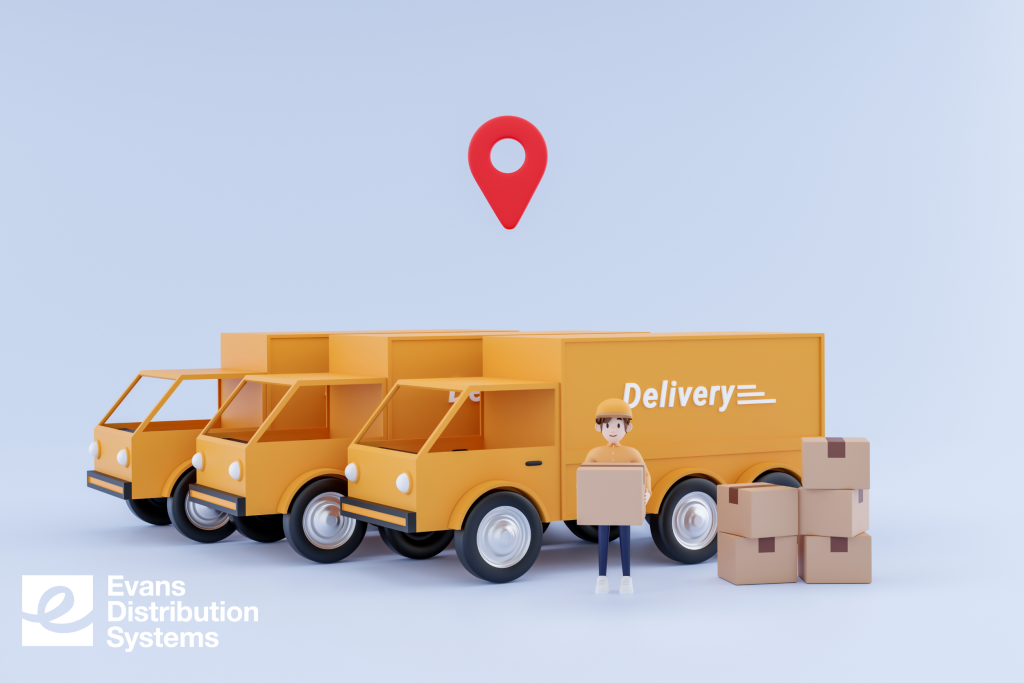
In today’s fast-paced global economy, companies rely on logistics partners to manage their supply chain operations. Whether you’re moving goods internationally or fulfilling orders for e-commerce, choosing between a freight forwarder and a third-party logistics provider (3PL) can make all the difference to your company. While both serve vital roles, their services, strengths, and attention vary greatly. Let’s explore the differences between freight forwarders and 3PLs and understand which is right for your company.
What is a Freight Forwarder?
At its core, a freight forwarder, also sometimes known as a 4PL, is a company that arranges the transportation of goods from one place to another. They coordinate shipments across multiple modes of transportation (e.g., sea, air, and land), handling complex logistics like customs clearance, international regulations, and shipping documentation.
Freight forwarders act as a mediator, working with various carriers to negotiate rates, optimize transportation routes and manage the process. They specialize in importing and exporting goods internationally, ensuring compliance with local and international laws, and mitigating risks during shipping. They typically focus on streamlining transportation costs and providing clients with seamless end-to-end transit for goods, whether it’s shipping by air, sea, or land.
What is a 3PL?
A third-party logistics provider, or 3PL, offers a much broader range of logistics services beyond transportation. They manage various aspects of the supply chain, including storage, order fulfillment, packaging, quality inspection, transportation and distribution. 3PLs integrate directly with their clients’ operations, often syncing with e-commerce and warehouse management platforms to handle everything from receiving products to last mile delivery.
3PLs provide a full-service approach to logistics, acting as an extension of your business. They not only manage transportation needs but also optimize your entire supply chain. This makes them ideal for businesses looking for a comprehensive solution to streamline operations, reduce costs, and scale as they grow.
Differences between a Freight Forwarder & 3PL:
Scope of Services- Freight forwarders focus exclusively on transportation logistics, particularly international shipping. In contrast, 3PLs offer a specialized range of services, such as value-added services, inventory management, and performance analytics.
Integrations- Freight forwarders act as intermediaries between shippers and carriers, where 3PLs are much more deeply embedded in business operations. 3PLs handle everything from shipping, receiving and inventory management, providing greater control and visibility over the supply chain.
Specialization- Freight forwarders are specialists in international shipping and customs. They optimize transportation networks across different modes of transport. However, they never touch the goods. 3PLs, on the other hand, accept goods under their care by providing storage and handling. Also, many 3PLs oversee domestic logistics, through ownership of transportation assets and in-house freight brokerage services.
Deciding Between a Freight Forwarder & 3PL
Choosing between a freight forwarder and a 3PL largely depends on your logistics needs. In many cases, you may require services from both providers. Freight forwarders excel at navigating customs and ensuring shipments move smoothly across borders. However, as your business grows and its supply chain becomes more complex, a 3PL can handle additional high-touch functions upon reaching the port or rail yard.
However, your logistics needs should also be considered. If your primary focus is transportation then a freight forwarder is what you are looking for, but if you need more comprehensive solutions, like warehousing, order fulfillment, and integrated supply chain management, a 3PL can provide these services. 3PLs offer end-to-end logistics solutions that streamline operations and allow businesses to focus on growth, while freight forwarders remain focused on moving goods from point A to point B.
Here are a couple questions to ask yourself:
- Are you shipping internationally or domestically?
- Are your shipping goods out-of-the-box or do they require additional handling?
- Do you have a customs broker to clear your goods?
- What additional services do you need?
- Are you looking for a partner that integrates with your system?
- Do you prefer a standard rate structure or quote-by-quote basis?
- Do you require storage?
Conclusion
Both freight forwarders and 3PLs offer essential logistics services, but they cater to different business needs. Ultimately, your choice should be based on your specific logistics needs, budget, and growth plans. By carefully evaluating these factors, you can choose the right logistics partner to help your business thrive.
Still not sure which is best for your business? Evans Distribution offers comprehensive 3PL services, specializing in warehousing, transportation, fulfillment, and value-added solutions that streamline the entire supply chain. If you’re looking for a trusted 3PL partner to support your business growth, our team is ready to help!
Reach out to our sales team at sales@evansdist.com or visit our website at evansdist.com to answer your questions about which is right for your business.
